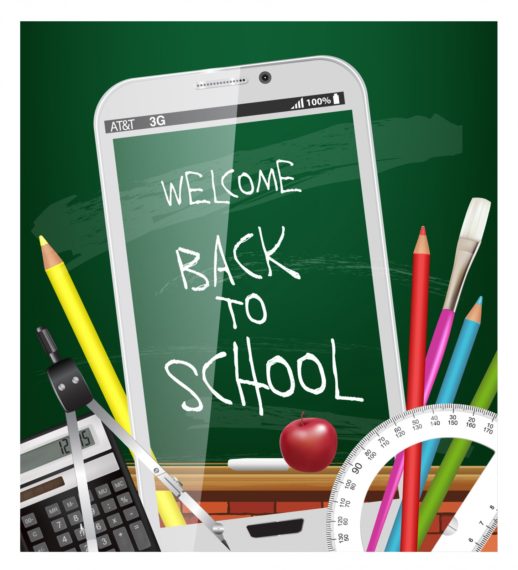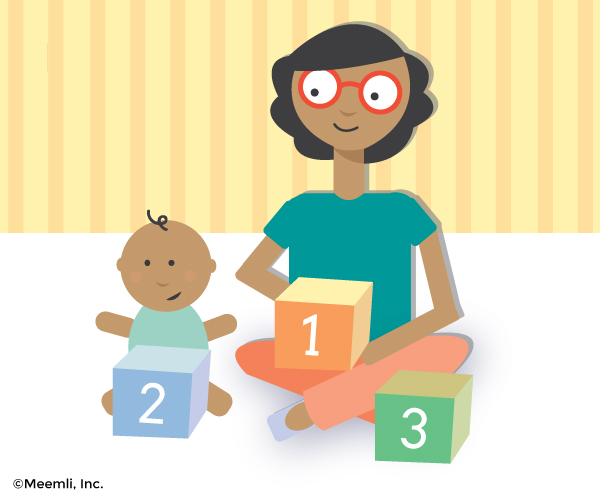The air may not be getting cooler yet, but fall is just around the corner! That means the return of football games, cable-knit sweaters, your favorite hot beverages and, for better or worse, the start of the school year.
No matter what grade you’re in, each year of high school is an important step on your path to whatever your future holds. But remember, it’s important to enjoy your journey in the meantime. The more you plan for the school year, the less stressful—and the more fun—it will be!
While it’s never too early to plan for the school year ahead, it’s never too late, either. There are plenty of things you can do, on both large and small scales, to make this year the best one yet. Time to get your prep game on!
Get Organized – and Plan for Fun!
You know that girl in your class who always has her planner perfectly color-coded? She might seem like, well, a bit much, but she’s definitely onto something—have you ever seen her turn in an assignment late? We’re guessing probably not.
You don’t have to plot out every minute of every day, but having a planner that you update consistently is a great way to keep yourself on track. Write down upcoming assignments and long-term goals, and plan for more study time than you think you need.
It’s also important to plan for fun things; if you have your activities written down alongside schoolwork, you’ll remember all the things you have to look forward to each time you update your schedule!
Pinterest has a lot of ideas to get you started on your own customized planner. Remember, this is just for you—organize it any way you want. And if you prefer, there are many digital planners that are perfect for teens – check out our post for ideas!
Group Up On Your Studies
No matter how much you like school, there’s likely at least one subject (or two…or three) that just doesn’t grab you. Studying for something you’re not interested in personally can feel like the worst. Plan ahead and alleviate stress come test time by getting a group together.
Even if you just meet once a week for an hour, having a regular study group of peers for a class you’re not totally psyched about will make it much more bearable. You can compare notes and make sure you’re on track, so that come test time, you’re not cramming in every possible factoid at the last minute.
Can’t meet in person? There are many options (including Meemli!) to meet online – read more about getting the most out of study groups here.
Start Researching For The Future
There are plenty of steps you can take to prep for college and your future career no matter what grade you’re in. Your path will be determined by tons of factors—where you want to go, what’s important to you and, most importantly, what you want to do. Don’t panic—there’s so much time to decide!
But the more you plan for the school year now, the better you’ll be in college and beyond. Think about the things you like; are you taking the right electives? The more you assess what you really love learning, the more you can prepare yourself for college. CollegeBoard has a great roadmap tool to help you get started wherever you are in your college prep!
Writing a College Essay?
Coming soon from Meemli – College Essay Guidance that’s just right for you!
contact us to get info on course details and more!
Get More Info
Related Posts:
Thinking about the year ahead may be stressful, but it doesn’t have to be. Remember: you’re not going through this alone. If you plan for the school year even just a little, you’ll make it a lot easier on yourself when those midterms come up seemingly out of nowhere. You got this!
Have a favorite planner idea you’d like to share? Leave us a reply!
Blog
(Parents may help their younger kids with this!)
As your summer break is winding down, you’re probably getting ready for school. So why do you need a back to school book list now? Two reasons: one, you might be in a rush to find a good book to read for your summer reading assignment (procrastination is common!) and two, reading during the school year is a great way to build your study skills, and depending on the book, have some fun too (learn why reading helps here).
So without further ado, here are two teacher-curated lists of books for high-school readers (and advanced middle-schoolers too).
Books marked with a ‘*’ are best for advanced readers due to content and/or reading level. Please check the description, and if necessary, with your school and parents, to ensure it is an appropriate choice for you.
Selections for Academic Reading
Coming of Age
Sandra Cisneros,The House on Mango Street
Franciso Jimenez,The Circuit
Lensey Namioka,Ties That Bind, Ties That Break
John Knowles, A Separate Peace
*Barbara Kingsolver, The Bean Trees
Multicultural
Rudolfo Anaya,Bless Me, Ultima–
Julia Alvarez,How the Garcia Girls Lost Their Accents
*Jhumpa Lahiri, The Namesake
*Chinua Achebe,Things Fall Apart
*Khaled Hosseini,The Kite Runner
American Literature
Ernest Gaines,A Lesson Before Dying
Harper Lee, To Kill a Mockingbird
*Tim O’Brien,The Things They Carried
*Zora Neale Hurston, Their Eyes Were Watching God
*John Steinbeck,The Grapes of Wrath
British Literature
Charlotte Bronte, Jane Eyre
Charles Dickens,Great Expectations
Thomas Hardy, Tess of the D’Urbervilles
**Oscar Wilde, The Picture of Dorian Gray
**Virginia Woolf,Mrs. Dalloway
Biography/Autobiography
Helen Keller, The Story of My Life
Racquel J. Palacio,Wonder
Jacqueline Woodson, Brown Girl Dreaming
Mark Mathabane, Kaffir Boy
Frederick Douglass,The Narrative of the Life of Frederick Douglass
Fresh and Uncommon Reads
Non-Fiction
James Hirsch, Hurricane: The Miraculous Journey of Reuben Carter
Martin Pistoris,Ghost Boy
Steve Sheinkin, Lincoln’s Grave Robbers
Deborah Heligman, Charles and Emma: The Darwins’ Leap of Faith
Maya Van Wagenen,Popular
Agnieszka Biskup & Tammy Enz, Batman Science: The Real-World Science Behind Batman’s Gear
Graphic Novels
Alexander Lagos, Sons of Liberty (10+)
Doug, TenNapel, Ghostopolis (10+)
Raina Telgemeir, Smile (14+)
Gene Luen Yi, Level Up (14+)
Emily Carroll, Through the Woods(14+)
Marjane Satrapi, Persepolis (16+)
Middle Level Reading
Kelly Fiore, Just Like the Movies
Megan Shull, The Swap
Lauren Morrill, Being Sloane Jacobs
Firoozeh Dumas, It Ain’t So Awful, Falafel
Jason Reynolds, As Brave as You
Kwame Alexander, The Crossover
Up All Night Reads
Frances Hardinge, The Lie Tree
Alex London, Proxy
T.L. Costa, Playing Tyler
Michael Grant, Gone
E.L. Lockhart, We Were Liars
Oh, What a World
M.T. Anderson, Feed
Joelle Charbonneau, The Testing
Sally Gardner, Maggot Moon
Patrick Ness, The Knife of Never Letting Go
Mark Frost, The Paladin Prophecy
Ernest Cline, Ready Player One
Exploring the Unusual
Robin Sloane, Mr. Penumbra’s 24-Hour Bookstore
Chitra Banerjee Divakaruni, Mistress of Spices
Cath Crowley, Graffiti Moon
Kate Hattemer, The Vigilante Poets of Selwyn Academy
Leslye Walton, The Strange and Beautiful Sorrows of Ava Lavender
Max Barry, Lexicon
Reading is good for us in so many ways, but we hope that some of these books help you realize that reading is fun and something pleasurable you can do all your life. Save this list, and as social reading is even more fun, share it with friends!
We enjoyed putting this list together and would love to make it better. If you have books you’d like to add to the lists, leave us a reply – Happy Reading!
Blog
(Parents may be happy with this use of social media!)
School’s out for the summer, but you’re not exactly free of school, are you? Even if you don’t have serious skill-building or the more fun enrichment classes lined up, you most likely have a summer reading assignment to get done before school starts. Reading programs roll out predictably each summer, along with hot days, cool shades and ice cream.
Why is the summer reading assignment so popular? Is it necessary? That question is asked, and answered, every summer and it looks like they’re going to be a mainstay in most schools, public and private, for a long time. If you want to know why, check this article for a list of reasons.
Then again, here are some reasons why the students are not excited about summer reading:
– There are other, more interesting things to do, especially for those who are not avid readers
– It is hard to schedule: read too early and you forget everything, put it off until later and you run out of time
– The prescribed books are often boring, hard or both
– It just doesn’t seem like fun
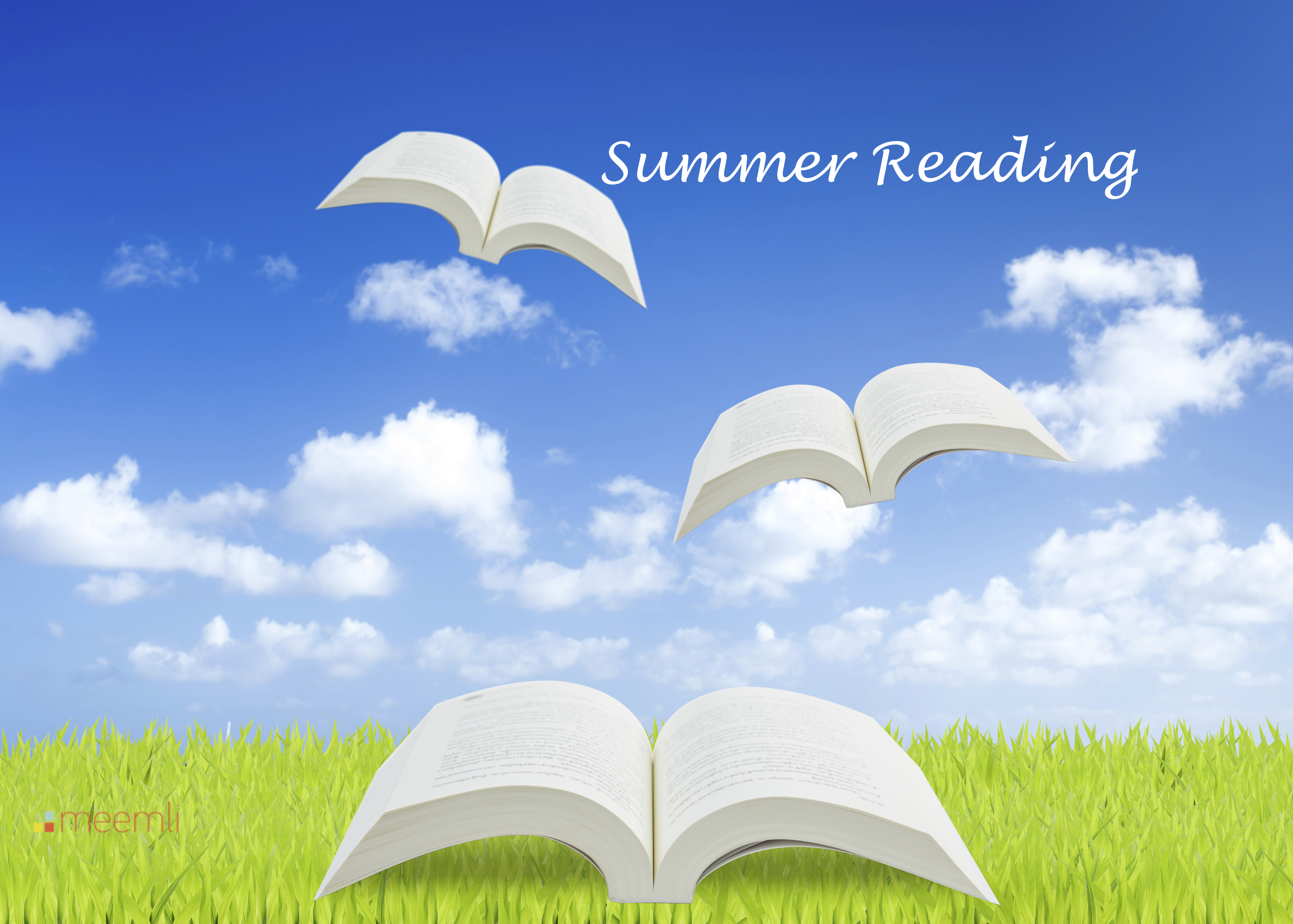
We at Meemli believe that reading is a great activity, for school and life, and with a few tips on how and what to read, almost anyone can become a lifelong reader. We’re so committed to it, that we have launched a free summer reading program (details below) to help teens with their summer reading assignments – the list below includes some of the key components for breezing through summer reading.
Motivation
With the lazy, hazy days of summer break, with no structure (hurray!), it is hard to even remember to read, leave alone being motivated. Having timely reminders and motivation boosts will go a long way to easing the fear of being swamped with reading (instead of having last-minute fun with friends) just as the summer winds down.
Help For The Hard Parts
Let’s face it, many of the books in the “required” reading lists that are provided by schools can be hard to get through. They could be set in a period and place that are hard to relate to (“Great Expectations”) or the story may just be very hard to take (“Things Fall Apart”). Getting some help in putting the harder books in perspective and learning to pick out the appreciate what’s best about them would make the reading assignment so much easier.
Tips For Reading Better
Are there ways to read better? Don’t you just pick up a book (or turn on your iPad) and just read? Just reading is a great way to start, but for school (and later on, for college), you have to read with purpose. You need to understand what you read and to be able to give answers to thought-provoking questions about the books. And SparkNotes won’t really do the trick there – plus, you’re cheating yourself by using them, instead of developing the skills to truly understand what you read. Learning how to read with purpose is another useful life skill that summer reading can build for you!
Interesting Book Recommendations
The good news is that most schools allow you to read at least one book of your own choice. The tough part is figuring out which one it should be. There are thousands of books out there and getting recommendations makes it easier than spending hours searching online.
Activities To Make It More Fun
For good or bad, nobody just does one thing anymore – they find ways to embellish it with more activities. You don’t just eat at a restaurant – you share a picture, you post a review, you add it to your blog. If your summer reading is more than just reading, it becomes something that you’re more excited about doing!
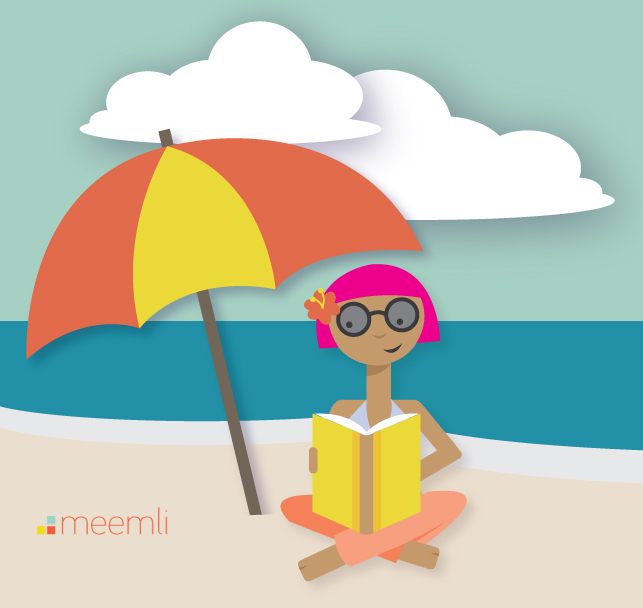
#TeenSummerReading2016
Want an easy way to do this? Get it all for FREE – all you have to do is follow Meemli!
Find out more about it here
This year, take your summer reading online and share the fun with us!
Need Help With Essays?
Get personalized feedback from a Stanford-trained educator on any personal essay that’s critical to you.
Related Posts:
Blog
(It’s that time of year and we’re happy to once again share our ideas for having fun with summer learning!)
Yay! Summer’s here! School’s out! You can forget all about learning for a while.
Wait, what? Forget about learning? Studies say you don’t want to forget all about it. If pressed, you’d probably agree that your brain feels like mush if your summer activities are just binge-watching old TV shows and getting your thumb in a cast playing a zillion hours of video games. The dreaded summer learning loss is just not worth the pain the out-of-shape brain brings at the start of the school year.
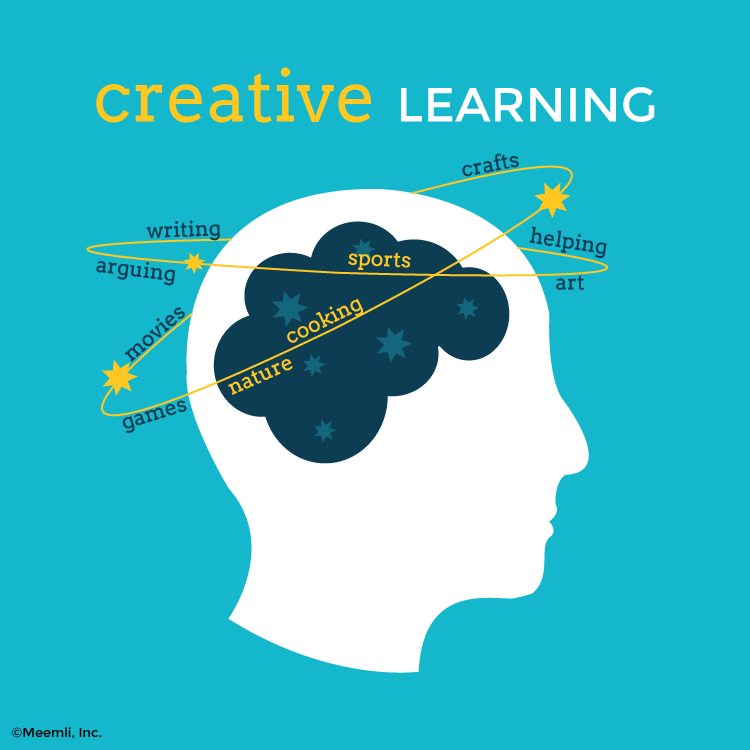 So good for you, you want to keep your brain awake during the summer. But you’d rather not have to sit in hot classrooms or fill out mind-numbing worksheets. And though there might be “enrichment” classes that could be interesting, maybe you are unable to attend them for some reason or another (too far, inconvenient schedule, too expensive, whatever).
So good for you, you want to keep your brain awake during the summer. But you’d rather not have to sit in hot classrooms or fill out mind-numbing worksheets. And though there might be “enrichment” classes that could be interesting, maybe you are unable to attend them for some reason or another (too far, inconvenient schedule, too expensive, whatever).
The good news is that you can make your own learning plans for the summer! l
Learning doesn’t have to be structured, or be in the form of lessons taught by someone else. We have some ideas for summer activities that:
- Can be done at little or no cost with readily available materials
- Take up as little or as much time as you care to put in
- Can be done pretty much anywhere in the world (even if you’re at Grandma’s)
- Build your critical, and creative, thinking skills
- Are totally controlled by you!
The steps for any of these activities are pretty simple:
-> Pick something you enjoy doing.
-> Dive deep to learn about it.
-> Make it your own.
Check out our ideas to get you started!
1. If you’re into games.
Is playing video/online/board games how you relax?
Take your favorite game and think about how you would do it. In detail. How would it work, what would be the rules. Keep refining it. And then create a new game with your own rules.
If it’s a board game, here are some ideas on getting started and even build a prototype with cardboard. This is a good one to do with friends, you can at least get them to play it with you.Think the characters in the video games are stereotyped? Mix them up. The levels are too easy? Add new ones. If you want to take on coding, you can create, or add to, an online game. Minecraft modding anyone?

2. If you love movies.
Watching movies is almost an universally popular way to spend time, but do you feel you’re more than a mere fan, you’re a critic and aficionado?
How about going beyond watching movies to thinking about making one? Take a favorite movie and think about how you’d remake the movie. Think (or learn about) about all the stuff that actually goes into making a movie – you’d be amazed at how much there is to learn and do.
But, though it is good to be informed, don’t be intimidated by what it takes to make a professionally. Write a script, recruit a few friends, charge up your smart phone and create your own masterpiece. You’d see the difference between making a movie and capturing 10 seconds of your dog chasing its tail to share on Snapchat – the first step to preparing for being asked to make Star Wars Episode 35: The Force is Still There.
3. If you’re a maker.
Are you into the Maker movement and DIY thing? Do you like to knit, crotchet, sew, solder or glue stuff together?
Then forget instructions and patterns. Think of something that you’d like to make and go about making your own instructions, patterns, how-to guides. Experiment, review, revise, repeat. This is also an activity you can do with friends. Whether it is making a doggie hat or a robot, you will be exercising your brain as well as your maker skills. Here are some suggestions for DIY ideas to get you started on thinking about what you’d like to make.
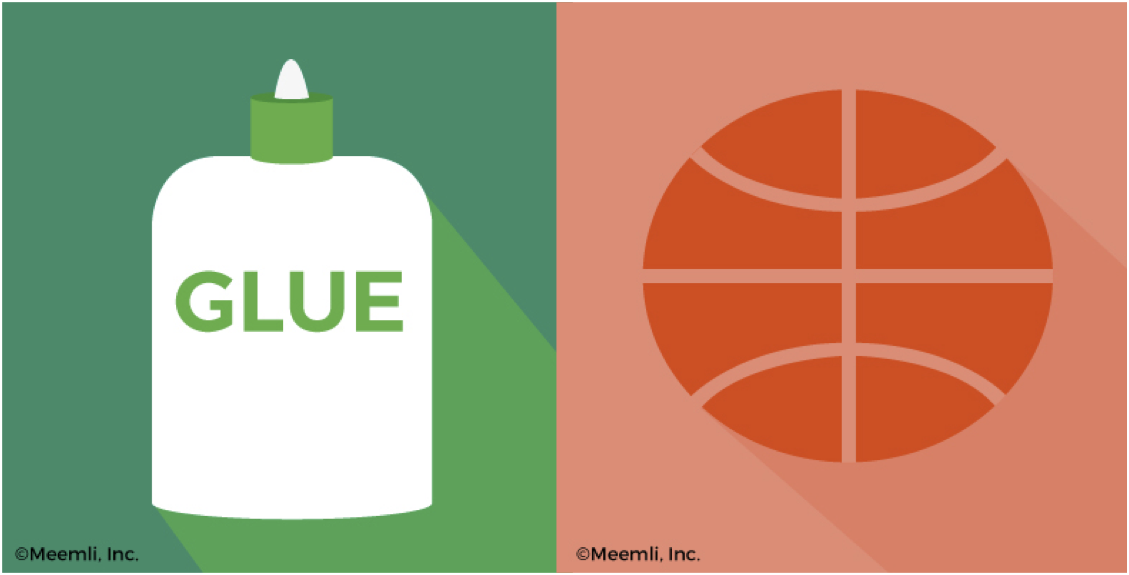
4. If sports are your thing.
Are you into one or more sports at school but not attending a sports camp this summer? Or you’re just a casual player and would just like to get better?
Whatever your sport, you know you can get better at it. There’s practice and watching/learning from the pros of course – that what you get from camps. But athletes are turning to analysis to figure out how to improve.
What if you did the analysis for yourself? Angling the ball differently to make a basket, how you can put more power into your kick if you change the way you stand – you may be able to learn some of this on your own. Recruit a friend and two and make your own mini-camp. Take turns capturing plays on the video, review your play against the pros (YouTube has you covered there), make your own training schedule.
5. If you really like writing.
Do you read a lot and enjoy the challenge of creative writing, or would just like to get better at it?
One summer may not be enough time for you to finish the Great American Novel, but it will help to get started. Or tackle something smaller and set yourself a challenge like writing a mystery short story. Do some research on writing resources for teens (you can get started with the one here) to figure out what interests you.
If you prefer to write something shorter and get more immediate feedback, try writing your own blog. This site might give you some ideas. (Contact us if you’d like to write a post for us!)
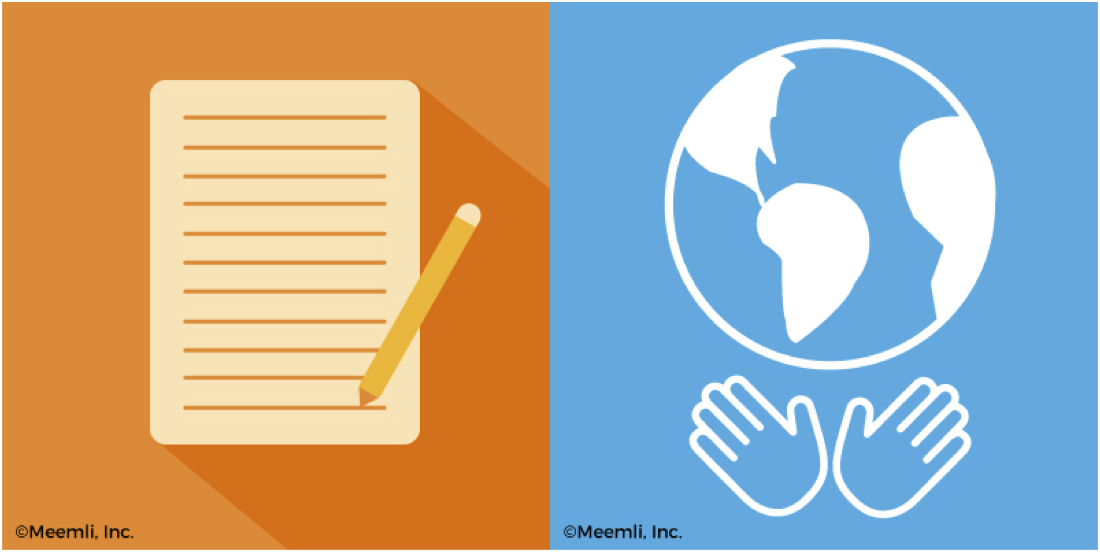
6. If you want to change the world.
You often volunteer for various causes to help people, why not take some time to get more involved?
Pick one problem that you wish you could fix, example, preferably something close to home, but that’s not a requirement. Dig around to find out what is already out there to help fix this problem and if there’s something you can do to help, you can start by looking into this resource site. You can also take on bigger sized projects, either one that already exists (like sending used books for kids in Africa) or one that you’d like to start. You will find many adults willing to give you support, and you will gain invaluable skills while helping others.
These are just some quick, simple ideas to get you started. Do your own add-ons and take it as far as you’d like to go. Take ownership of your summer activities for learning, at least for some of them, you’ll enjoy the experience!
And let us know how it goes – it would be great to share your experience with others!
Blog
(This is one of our favorite posts!)
Mother’s Day is coming up and the Meemli team would like to take this opportunity to salute moms for being such amazing teachers! They’re there from the beginning of life and stay constant all through it. Think that “teaching” only happens in the classroom with “real” teachers? Think again. Here’s a brief list to help you recognize the teacher inside every mother.
Another reason to say “Thank You Mom!” – not that you needed it!
Early childhood
Mother’s lap is a child’s first classroom. The first five years of life impacts how well babies learn and grow throughout their lifetimes. This is probably when mothers do their most intensive teaching to a child who’s doing a fantastic job imitating a sponge and soaking up every bit of knowledge.
The survival stuff.
Learning to eat, drink, climb stairs, crossing streets safely, identifying a dangerous pet from a friendly one. The basics for living.
Life’s essentials.
Survival is not sufficient. With every hug and cuddle mothers teach their children about love, trust, friendship and all those intangibles that make life worth living.
Building blocks.
Even if you may not call them ‘academics’ (though many do, even for toddlers), mothers give children the building blocks for learning: language, math, science, arts. It may be mommy-and-me play, but the mom is teaching and the little one is learning a lot (maybe that why kiddos need those naps!).
Middle Childhood
The kid is off to a “real” school, with “real” teachers (yes, they do play a big part in a child’s life) for most of the day and mom is no longer the primary source of their learning. But moms are still teaching, though some of what they teach is now influenced by external factors and there are new areas to explore.
School learning.
At this stage, mothers are primarily focused on helping their child learn to handle the requirements of school, the “schoolwork” and “homework”, not to mention the tests, the projects, and the to-do lists that the teacher sends home. Learning how to cope with school is important and a trusted, loving source like mom makes a huge difference.
Skill building.
Even though a child is being “taught” at school, moms may find themselves helping (“teaching”) him how to do math or interpret the guidelines for a book report while teaching study skills and habits (turn off the TV while doing homework!). This is the time when a mom also encourages the child to try other activities like sports and music, so she can learn new skills and get a taste of the many wonderful things she may enjoy learning and doing.
Character development.
For sure this is happening during the early years too and will continue through adolescence, but now the mother and child can name the traits (honesty, kindness), identify their presence or absence in role models and discuss why they’re important. Mothers will be finding teaching moments everywhere from shopping trips to soccer fields!

Adolescence
The pre-teen and teen years are a significant transition, and mothers may be shifting to a more supportive role in their teaching. Most of all, what they’re doing now is helping the child prepare for adulthood and all that it entails. Mom is getting her child ready to take on the world!
Academics.
Maybe moms don’t help their children with advanced math anymore, but they try to find someone else who can or encourage him to go talk to his teachers. Maybe they can’t critique an essay, but they help their child brainstorm what she should write about for a personal statement (or sign up for a class, like this one at Meemli). And moms teach their kids how to plan and juggle various commitments and deadlines – after all, they do plenty of that themselves!
People Interactions.
It’s about dealing with their peers (Friends! Boyfriends! Girlfriends!), as well as about speaking up at school, asking for summer jobs or help from people they know. And mom is there to teach them how to recognize, accept and handle their feelings and manage their interactions (and give a hug and box of tissues when needed).
Awareness.
Young teens are learning about the world and their role in it. They may become aware of the major problems (environment, inequality etc.) and mom may be part of many long (and heated) discussions on the future of their world. Moms are learning something themselves while offering guidance in understanding these complex issues that will affect their children’s adult lives..
Practical Stuff.
There’s a long list of “simple” things that they get their child to do like managing money, doing laundry, cooking meals. All the things they need to know to be able to head out into the world on their own.
Let’s face it, once kids have discovered the Internet, it is easy to believe that they can learn “how” to do just about anything from a YouTube video. But not the “way we do it” and usually not the “why”. And Moms have been answering that question from the time when humans first learned to call out for ‘Mom!’.
What was the most memorable thing you learned from you Mom? We’d love to hear from you!
Need Help With Essays?
Get personalized feedback from a Stanford-trained educator on any personal essay that’s critical to you.
Related Posts:
Blog
(This is #1 in our series of tips for writing better essays.)
As a high school English teacher, I have read thousands of essays, from autobiographies to persuasive essays to Advanced Placement literary analysis essays. One problem that I often notice is that students tend to write in general terms and don’t provide enough information to make their work personal and impactful. Even essays that are already fairly good, could be made compelling with more detail to flesh out what the writer is trying to convey. So, if you are looking for a concrete way to improve your writing skills, these two techniques will instantly take your essay to the next level and are simple enough to try out with your next assignment.
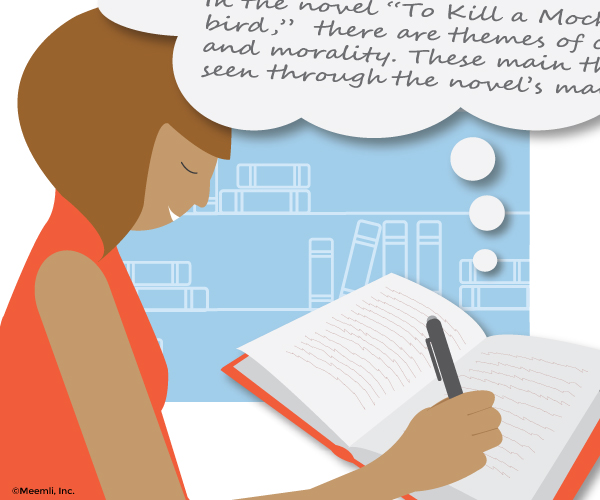
Be Specific
Specific means “clearly defined or identified.” In other words, tell what kind and how many. “Baby, it’s cold outside” may be good for a song, but a California girl like me can feel chilly at 60 degrees, while someone in Minnesota might wear shorts when it’s 40 degrees. Save everyone the trouble and be specific. Often our default is to write in general terms, but incorporating specific details makes your writing more accurate and interesting.
Check out this example:
Kobe Bryant recently retired after a long and successful career.
If you’re already familiar with Kobe Bryant, this sentence may not be problematic. But, if you didn’t know anything about him, you probably need more information.
Kobe Bryant, star basketball player for the Los Angeles Lakers, recently retired after a 20-year career that included leading his team to five NBA championships.
Now we’re talking. Still just one sentence, but there is no mistake as to who Kobe Bryant is, what type of athlete he is, and what makes his career “successful.”
Don’t assume your readers will know what you are thinking; you have to tell them exactly what you want them to know.
Be Descriptive
“Show not tell.” Ever heard your teacher say this? She’s reminding you to be descriptive in your writing: paint a picture with your words by showing what you are thinking, not simply telling. You can do this by using figurative language, lively verbs, and sensory details (the five senses).
Let’s consider the most popular books right now. What these books have in common is that the reader is able to escape into a unique world. The author uses such vivid details that the reader can visualize the scene and characters.
In this example from The Hunger Games, you’ll see the difference that details make:
Details Removed:
Sitting next to Prim is an ugly cat. Prim named him Buttercup because of his coloring. He is not friendly to me. I think he still remembers how I was mean to him when Prim brought him home.
Original Passage:
Sitting at Prim’s knees, guarding her, is the world’s ugliest cat. Mashed-in nose, half of one ear missing, eyes the color of rotting squash. Prim named him Buttercup, insisting that his muddy yellow coat matched the bright flower. He hates me. Or at least distrusts me. Even though it was years ago, I think he still remembers how I tried to drown him in a bucket when Prim brought him home. Scrawny kitten, belly swollen with worms, crawling with fleas.
While there is nothing seriously wrong with the first passage, it isn’t very interesting either. In the original passage, however, the author breathes life into the cat. The way he is sitting conveys intent, with the use of the lively verb “guarding”. We can visualize him because we know his exact shade of yellow, and we may even feel sympathetic towards him because of the description “scrawny…crawling with fleas.”
Using descriptive details is a natural pairing for creative writing, but it works well with other genres, too. For instance, informative essays can be more effective with descriptive details. The phrase “the resulting solution will change color” is less impactful than “the resulting solution will turn from clear to blood-red”.
Make it work for you
It’s easy to try out these techniques. Look at any essay you’ve already written and see if you can liven it up with specific or descriptive details.
But to be really good at using these techniques, you need to know more about them and how to use them effectively (too many descriptions can drag your essay down!). Check out online resources to learn more about descriptive writing (here’s one).
The best way to improve your writing is to write, a lot. And get feedback from someone qualified, because there’s more to descriptive writing than just throwing in some adjectives. So don’t be shy, practice and show what you’ve written to someone you trust to get a meaningful response. (Check out our Descriptive Writing course to learn more about how to add engaging detail and get personalized teacher guidance.)
Soon, these techniques will be infused into your natural writing style and you won’t have to work so hard on them. Happy writing!
We’d love to hear from you! Tell us how you plan to add more detail to your essays.
Writing a College Essay?
Now from Meemli – College Essay help from experienced experts!
Find the option that’s just right for you!
Get More Info
Related Posts:

